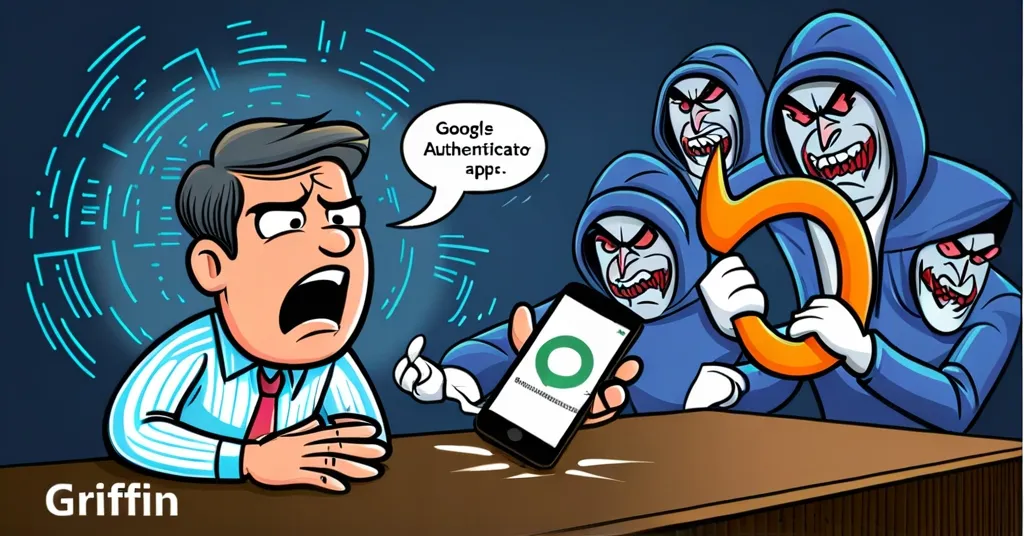Cryptocurrency Phishing Crisis: Griffin’s Loss Highlights Google Authenticator Vulnerability

In a dramatic twist of fate, Griffin, a seemingly tech-savvy individual, found his digital assets slipping through his fingers, thanks to an elaborate phishing scam. This incident not only compromised his Google account but left his cryptocurrency holdings exposed, underscoring the urgent need for robust security measures against increasingly sophisticated cybercriminals.
- Soundcloud wrongly removed a recording due to a false copyright claim.
- Google’s default cloud syncing creates potential security vulnerabilities.
- Phishing attacks remain a persistent and evolving threat.
- Google is committed to enhancing security measures.
Griffin’s ordeal began with Google Authenticator, an app designed to bolster security by generating one-time codes. While this feature seems convenient, by default, it syncs with a user’s Google account, creating a potential weak link. Scammers exploited this to access Griffin’s codes, breaching his digital defenses and pilfering his assets. His attempt to counter-scam the perpetrators backfired, escalating into personal threats from these digital bandits.
Expressing his frustration, Griffin remarked,
“I know I definitely made mistakes, but I also know Google could do a lot better job protecting people.”
This sentiment echoes widely among users demanding tech giants to fortify their cybersecurity measures. Acknowledging the threat, Google has pledged to bolster defenses through initiatives like the Advanced Protection program, aiming to safeguard users from targeted phishing threats.
Phishing scams are increasingly using sophisticated methods, such as creating fake websites that mimic legitimate services to deceive users into revealing sensitive information. Reports, like Cyble’s on phishing sites posing as the Google Safety Centre, highlight these evolving tactics. Experts advise disabling cloud syncing on apps like Google Authenticator and adopting physical security keys to minimize risks.
The saga extends to Soundcloud, the online audio platform, which wrongly removed Griffin’s recording due to a false copyright claim. This incident highlights the challenges individuals face when ensnared in stringent copyright enforcement processes, which often demand proof of innocence before rectifying wrongful takedowns.
The sophistication of phishing scams today is a clarion call for heightened vigilance. Malware like Latrodectus and ACR Stealer showcase the cunning of modern cybercriminals, necessitating continuous updates in security protocols. The misuse of digital advertising platforms to distribute phishing links further complicates the battle, requiring stringent oversight by advertising networks to protect users.
Here’s a quick rundown of critical questions and insights for cryptocurrency users and enthusiasts:
- How can users protect themselves from phishing scams? Disabling cloud syncing on Google Authenticator, using unique passphrases, and exercising caution with unsolicited calls.
- What vulnerabilities were exploited by the scammers in Griffin’s case? Access to Google Authenticator’s synced one-time codes via his Google account.
- How does Google plan to address phishing threats? By hardening defenses, improving security measures, and offering programs like Advanced Protection.
- What should users do if they receive suspicious account security calls? Hang up, verify contact information, and reach out through official channels.
The relentless arms race between cybercriminals and security systems highlights the importance of proactive measures. Users must stay informed and adopt robust security practices, while companies like Google and Soundcloud need to innovate and enhance their defenses to counter these sophisticated threats.



